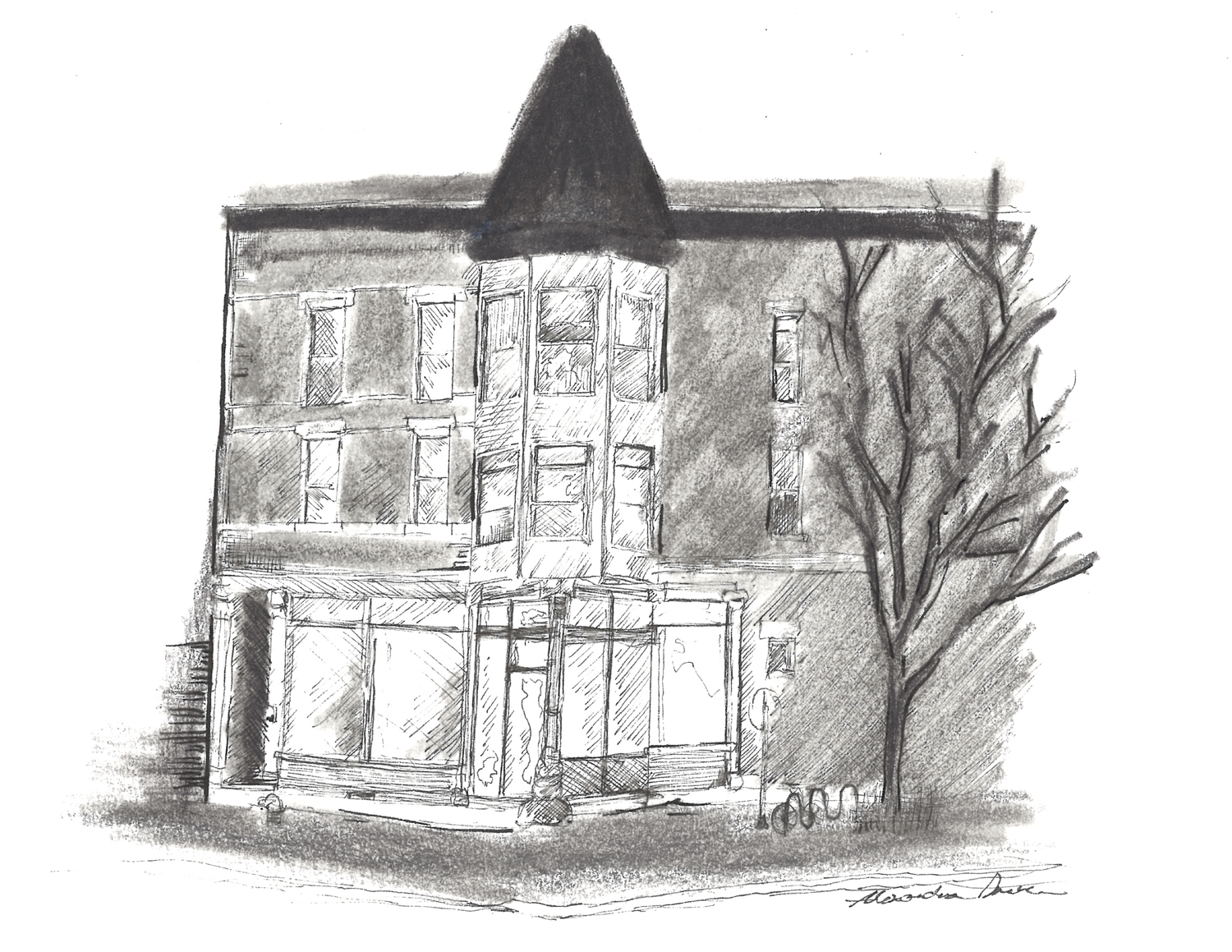When I entered Cultura, an arts and community space on the corner of 19th and Carpenter in Pilsen, it was a quiet Friday afternoon. Just a block from Pilsen’s busy 18th Street, the snowy intersection was mostly devoid of cars and pedestrians. Inside, Cultura’s main room was also calm. The black stage against the front window was empty, and the white walls of the room were dotted with only a few works of art.But after my talk with Cultura co-managers Luz Chavez and Moira Pujols, it wasn’t hard to imagine the space packed with people at one of their many public events, which have included concerts by Latino artists, a holiday-themed art bazaar, and writing workshops by noteworthy Latino writers. Chavez and Pujols have a clear vision for their project: a hybrid of art and activism that aims to engage the Pilsen community, offer a space for various organizations and events, feature both local Chicago artists and artists from Latin America, and create a dialogue about what it means to be part of Chicago’s Latino community.
Cultura was formed as a partnership between two organizations: Contratiempo, a Chicago-based organization that aims to present the cultural offerings of the Spanish speaking population of the U.S. and publishes a magazine with cultural commentary and literary submissions, and Gozamos, an online magazine directed towards young Chicago Latinos that publishes articles on arts and culture in English. In 2013, Contratiempo and Gozamos, having already collaborated on previous projects and both looking for a new space that would allow for more community engagement, decided to come together and create Cultura. The property had already been used as a space for art and activism, most recently under Calles y Sueños, another organization focused on arts and community.
“People in the community know that this is a space where the arts are highlighted, where non-mainstream cultural activity can have a home, where people can be listened to and can express themselves, both as activists and as artists,” said Pujols, who in addition to managing Cultura, is executive director of Contratiempo. Pilsen may be known for its art scene, but Pujols said this scene includes mostly galleries and studios. Cultura plans to host curated art exhibits too, but fills a void by also offering a space for performance and collaboration. In 2015, Cultura plans to add an open mic space to Pilsen’s monthly second Fridays Gallery Event.
Behind Cultura’s event space there is also an office area, shared by founding organizations Contratiempo and Gozamos, which continue to operate independently, in addition to working together on events at Cultura. Several organizations-in-residence with diverse missions are also housed in this space. The Chicago Latino Writers Initiative, a joint project of Gozamos and Proyecto Latina, highlights talented Latino writers from all over Chicago and also hosts workshops. There’s also Chicago Community and Workers Rights, which holds educational workshops for immigrants on their legal rights, and FMEL, a Latino electronic music company. A newly formed initiative called Latino Techies plans to host low-cost workshops on coding and web design in the coming months.
According to Pujols and Chavez, part of the reason that Contratiempo and Gozamos work well as partners is that their audiences are generally different, and that together they can reach a broad cross-section of the Latino community.
Part of Contratiempo’s mission is to provide a cultural space for immigrants. Their audience is comprised mostly of immigrants (as is their staff), and their programming is conducted either only in Spanish or in Spanish and English.
“I think very often immigrants are condescendingly addressed, in a very basic manner as if they were not capable of any sort of complex and sophisticated process of absorbing art, and we just feel really, really proud to offer that,” said Pujols, who is from the Dominican Republic but has spent most of her life in Chicago.
Though Gozamos also has a pro-immigrant, pro-immigration message, its focus is slightly different. Gozamos is an English-language publication and has a staff and audience that’s mostly second- and third-generation Latino-American.
“We know Spanish, but we communicate in English,” said Chavez. “As adults, that tends to be the dominant language, even if Spanish, like in my case, was my first language.”
The two organizations demonstrate the complexity of Latino identity and challenge the notion that it could be addressed as a homogenous identity. Chavez and Pujols hope the Cultura project can present an opportunity for dialogue about these types of issues without dividing the community.
“There’s just that constant conversation that needs to happen,” said Pujols. “We have it literally, we want to have it as part of the space in what we represent and present.”
Cultura aims to open dialogue about other issues as well, including LGBT rights (“particularly the T, which tends to get dropped off when you talk about LGBT rights,” noted Chavez). Several LGBT related events have been held in the space. In June, Contratiempo published an edition of the magazine centered around Latino trans issues. Gozamos helped sponsor and livestream a panel on the same theme, put on by the organization RAICES. The panel took place at Cultura and featured trans activist Bamby Salcedo, as well as some of the authors who had been published in the Contratiempo issue.
“It was packed, it was moving, it was illuminating, it was educational,”said Pujols emphatically. “When you have that kind of event, you feel like this is exactly the reason that we want to have this space.”
Cultura, 1900 S. Carpenter St. culturainpilsen.com
Correction January 16, 2015: An earlier version of this article mistakenly attributed the final quotation to Luz Chavez. It was said by Moira Pujols.

